To request an accommodation based on any disability, whether a physical, chronic health, psychological, or cognitive disability, a student must take the following steps:
Declare one’s disability by submitting appropriate written documentation regarding a disability from a qualified professional to the Accessible Educational Services Coordinator. It should be noted that Indiana University Northwest (IUN) has adapted the following guidelines developed by the Americans with Disabilities Act and Section 504 of the Rehabilitation Act of 1973.
- In the case of a physical or a chronic health condition, this documentation must be current medical documentation from a qualified health care professional that provides a specific diagnosis, describes symptoms, demonstrates an impact on a major life activity (i.e. learning, walking, sight), lists recommended educational accommodations, and provides a rationale for each accommodation.
- Traumatic Brain Injury (TBI)/Post-Concussive, documentation should be written by a qualified health care professional such as a neuropsychologist, neurologist, or occupational therapist. Testing might be required to determine the impact of the TBI on the student’s cognitive functioning. The medical documentation should outline the history of the condition, how the TBI impacts the student in one or more major life activities, and recommended accommodations along with rationales for each accommodation consideration.
- Students seeking accommodations based on a psychological or psychiatric disability should submit medical documentation from a qualified health care professional, such as a licensed psychologist, licensed social worker, and/or psychiatrist. If treated by both a therapist and psychiatrist, it is highly recommended to submit letters from both medical care providers to provide a thorough picture of the student’s condition and how it impacts a major life activity (i.e. learning, concentration). Rationales must be provided for each accommodation. If the student is taking psychotropic medication, the documentation should identify the medication and the possible side effects on the student’s cognitive functioning.
- Documentation of learning disabilities and/or Attention Deficit/Hyperactivity Disorder (LD/ADHD) necessitates a psychological or neuropsychological evaluation that is current (usually no more than five years old), comprehensive with a battery of tests, and includes a specific diagnosis in accordance with the DSM-V or ICD-10. Each accommodation recommended by the evaluator must include a rationale.
- Students diagnosed with Autism Spectrum Disorder, who are seeking accommodations, should submit a psychological or neuropsychological evaluation that substantiates the limitation on a major life activity. In addition, if there are co-existing medical conditions impacting the student, then it is encouraged to identify them and provide connections of how these conditions might impact a student’s learning.
2. Regardless of the disability, the documentation must provide sufficient information that substantiates the limitation on a major life activity as a result of the disability. The documentation and information regarding the student's disability will remain confidential and will be released only if and to the extent that the student provides the Coordinator with written authorization to release such information, or in the unlikely event that disclosure is compelled by legal process. Based upon the materials submitted by the student and a review by the appropriate University personnel, the Accessibility Services Coordinator will determine the appropriate reasonable accommodation.
3. An Individualized Education Plan (IEP) and/or Section 504 Plan can be submitted along with the medical documentation or psychological/neuropsychological evaluation; however, it cannot solely be used for determination of accommodations. Also, students can submit letters verifying accommodations received during their previous educational experiences (i.e. high school, college, etc.) as well as accommodation memos for standardized examinations (i.e. SAT, ACT, GRE, GMAT, MCAT). Such supporting documents serve to demonstrate history of accommodation; they are not a substitute for medical documentation in accordance with University documentation guidelines.
4. Students are strongly advised to register with the Accessibility Services Coordinator upon matriculation into the University; it can take up to four weeks to review documentation and to handle accommodation letters that students provide to their professors. Furthermore, at the beginning of each semester for which students are requesting accommodations, the responsibility rests with students to meet with the Accessible Educational Services Coordinator. During this meeting, a student must complete and sign a release of information form provided by the Accessible Educational Services Coordinator. This form gives the University permission to share, as necessary, information about the student's disability and accommodations with the appropriate University personnel (i.e. professors, academic deans) who will be involved in providing the accommodation to the student.
5. After these steps are completed, the student is responsible for meeting with the University personnel (i.e. professors, academic deans) who will be arranging for the implementation of accommodations and to discuss the recommended accommodations. In the case of academic accommodations, students must meet with their professors at the beginning of each semester and provide the accommodation letter from the Accessible Educational Services Coordinator. To maintain confidentiality, the student should meet with professors during office hours to discuss implementation of accommodations.
6. Accommodations are not retroactive. Although a student has provided documentation to the Accessible Educational Services Coordinator, the accommodations become active after the student has provided the accommodation letter to their professors. Students are responsible for discussing implementation of accommodations with their professors to ensure timely enactment of the accommodations.
7. Information for Consortium Students, Special Status Students, Non-Indiana University Northwest (IUN) Students Taking Summer Classes at IUN
- Students who receive academic accommodations based on a disability or a health condition are required to adhere to the same documentation protocol as matriculated IUN students.
- Reasonable accommodations are determined based on documentation as well as an interactive process between the student and Accessibility Services Coordinator; students must meet in person with the Accessibility Services Coordinator and professors to implement any accommodations.
- Students are encouraged to submit medical documentation to the Accessibility Services Coordinator prior to the start of the semester/program to ensure timely implementation of accommodations. Students are not guaranteed similar accommodations as received at their home institutions.


